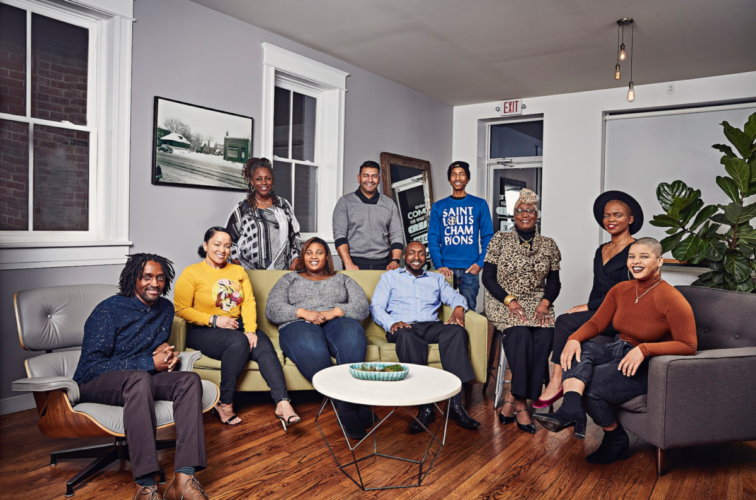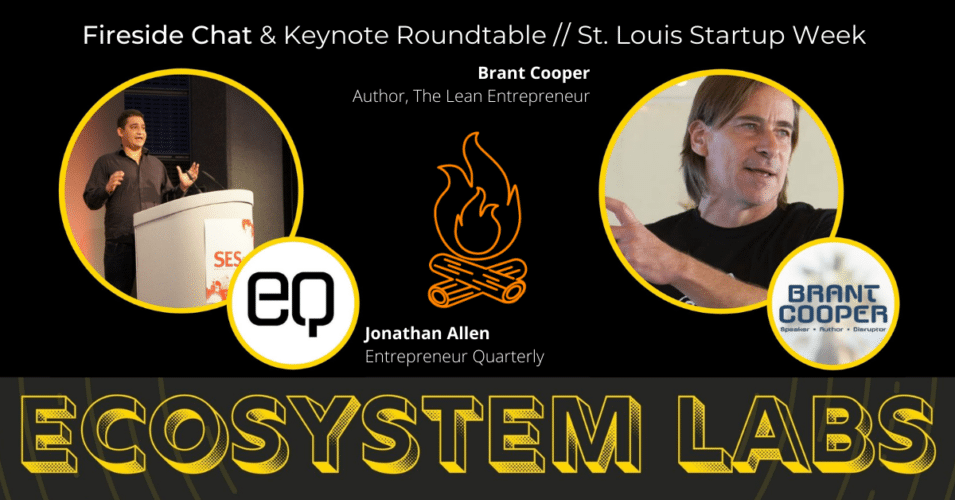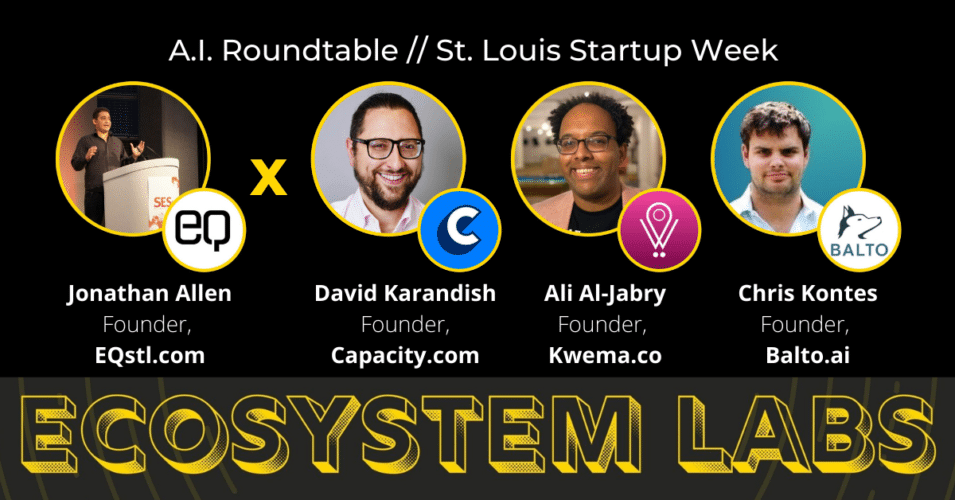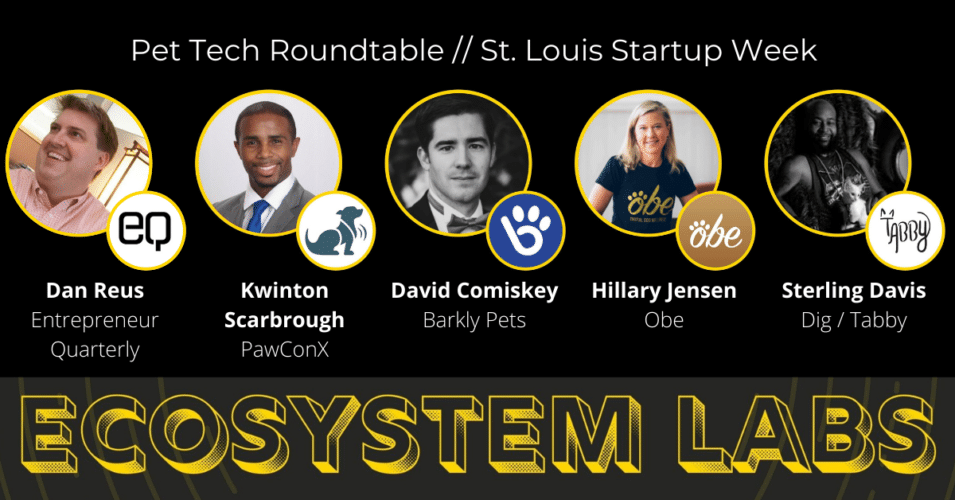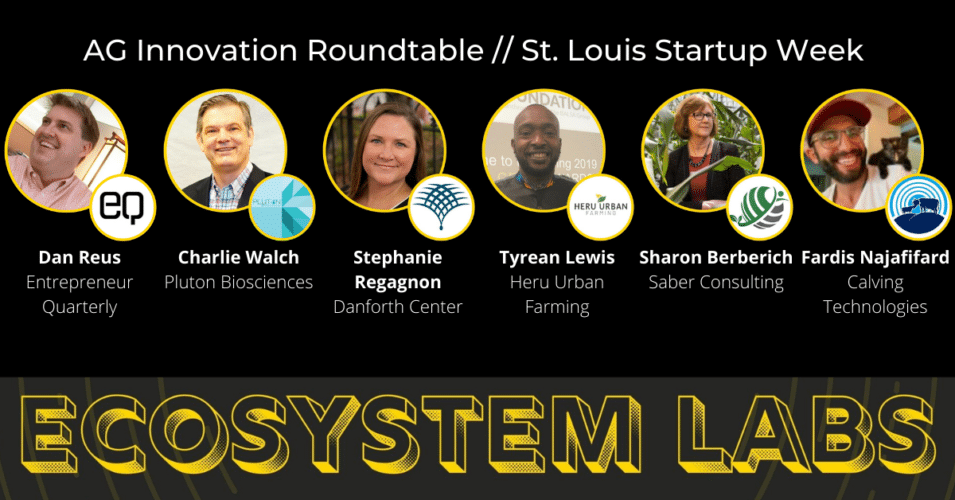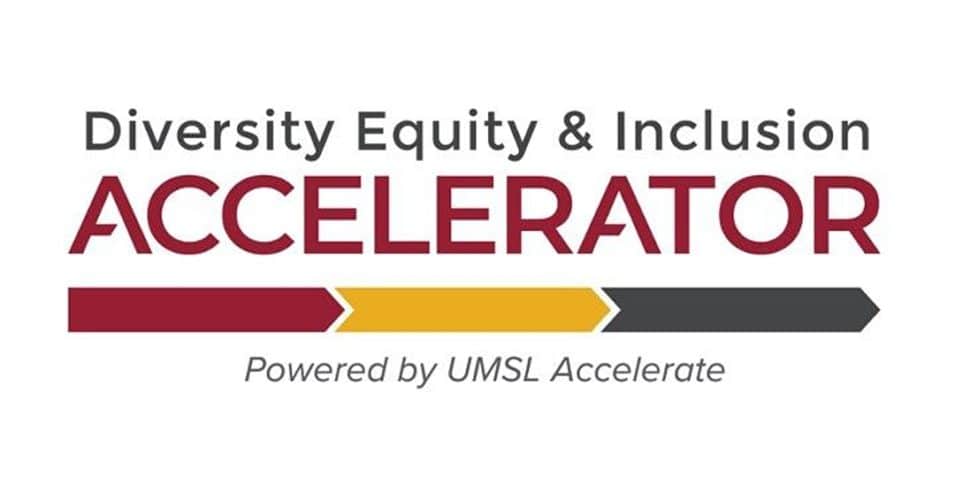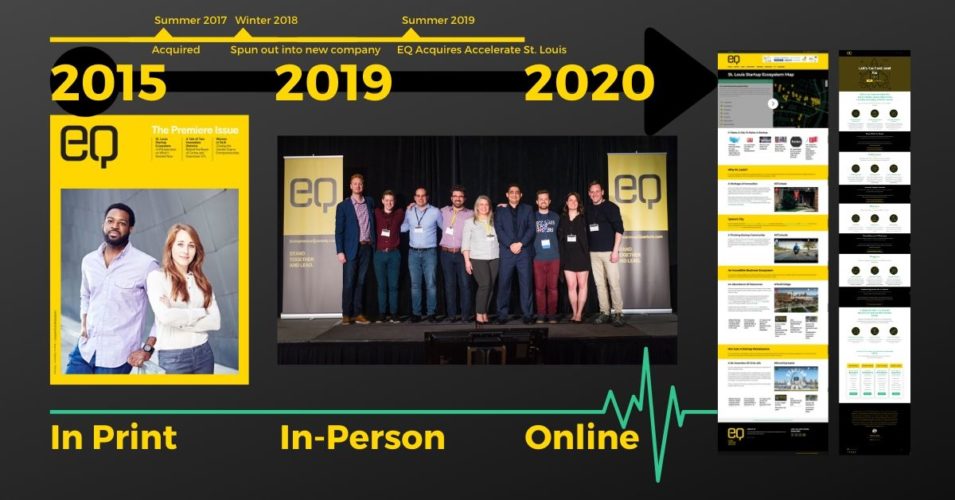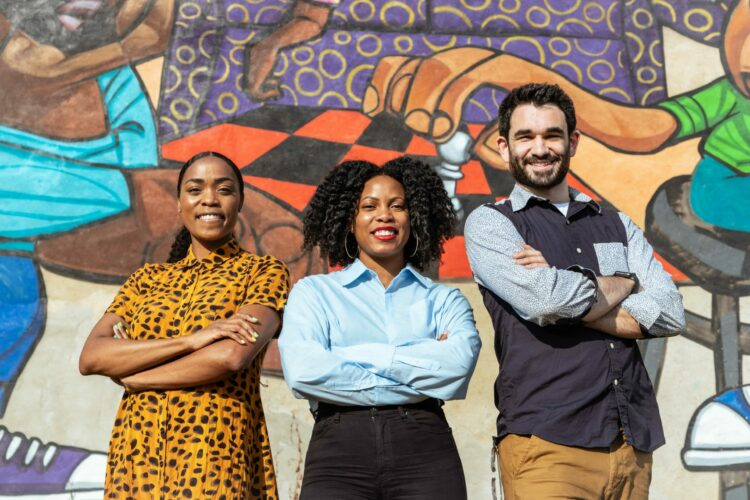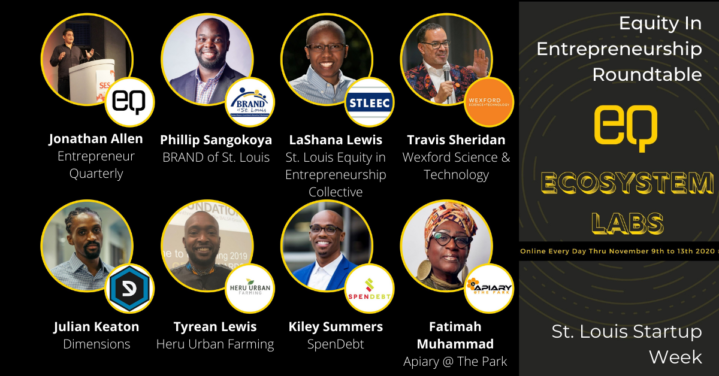
What Is Equity in Entrepreneurship? 9 Insights from St. Louis’ Black Business Community
One of the many highlights of this year’s St. Louis StartUp Week was a roundtable discussion organized by EQ about Equity in Entrepreneurship. We brought together some key players who have all the right credentials and experiences in this important field to shed light on how and why they’ve been able to succeed.
Heroic Efforts Drive Equity in Entrepreneurship
Read on to find out how social activism and life experience have played their part, consciously or otherwise, in some of the journeys to entrepreneurial triumph, or watch the discussion here.
Convergence of Activism with Social Impact Entrepreneurship


She also believes that a consequence of the pandemic has meant people have found creativity, spirit and courage that they never knew they had. This has led others who can bring about change to stop and take notice, the WEPOWER 2020 Cohort winner says.
Challenging Difference; Re-Imagining Opportunity

Given that there was no financial education in his urban community, Kiley saw a need to break a perpetual generational cycle and to come up with solutions that would make a difference as to how people organized their finances.
One of Spendebt’s aims is to help people gain control of their debt rather than allowing their debt to control them.
Resources Aren’t Always Available Where They’re Needed
Many would argue that Black entrepreneurs face unfair, additional risks because of inequalities within society. Nobody before her had thought to set up a co-working space in North St. Louis, Fatimah points out.
Given the high levels of unemployment, clear social disparities as well as a significant number of entrepreneurs there, ‘one would have expected it to be a prime location for co-working spaces to spring up,’ she says.
Instead, these were centered in areas where entrepreneurs may not have needed the types of wraparound services which her co-working space provides. “There’s an imbalance in looking at where businesses are placed, and why they are placed there,” she says.
Who’s Responsible for Equity?
Travis uses a hockey analogy to explain why the authorities are not stepping in to help redress some of the imbalances Fatimah flagged up. “Government wants to take a shot on goal when there’s an empty net,” he said.
“All the barriers are removed so that they can claim success for their innovative decision. Living in a place like North St. Louis means that there’s not just one goalie but multiple goalies and a lot of people trying to block us from success. And yet we are still taking the shots,” he concludes.
Reframing the Risk; Identifying Opportunity Costs

Bridging the racial equity gap is what’s at stake here, he believes. Articulating this and reframing the risk gives something for governments, private corporations and nonprofit foundations to aim for, Philip feels.
“My banking experience led me to realize that entrepreneurs are all different,” Phillip says. ‘Trying to categorize can make it easier to be judgmental and create stereotypes.’ He believes in co-creating solutions that bring together people from all races and demographics.
The Risk of ‘Analysis Paralysis’

“Naming something is important, but so is doing some work until you figure out what the name actually should be,” she says. She cites addressing the framework around equity issues as an example, and drilling down to find appropriate solutions for specific problems.
Outputs Vs Outcomes
Outcomes like closing the equity gaps in wealth and income and increasing the amount of savings African American families have, will be key measures of success in attaining equity, says Travis, but, importantly, he asserts that the goalposts for an investable business should not be changed through affirmative action type policies.
“When raising venture capital, the outcome that matters most is return of shareholder value,” he says. If different rules are applied to Black entrepreneurs, such as lowering the bar by taking something that’s not a return of shareholder value, then he believes the entire equation is compromised.
At the same time, Phillip believes corporations need to demonstrate a degree of social conscience. “The question should be, in addition to all those profits for your shareholders, what are you doing for the communities that you’re located in?”
This needs to be balanced with getting local communities to support the local businesses within them, according to Fatimah.
Growth Mindset And Sharing Your Leadership
The fact that there are disproportionately fewer Black entrepreneurial role models to look up to obscures the route for many to consider starting up a business, argues LaShana. To foster a climate that encourages more Black entrepreneurs, local communities need to consciously disrupt a mindset and ‘rhythm’ of consumerism and scarcity.

He’s set up his own urban farm in the city and locals have been clamoring at his door to buy the produce he grows. Tyrean practices a growth mindset by ‘sharing his leadership’, by supporting his neighbors in a very stark and selfless way by giving jobs to locals with drug issues and watching their lives improve.
Draw Power From Personal Experiences

Julian believes that, although governments are there to solve certain social issues, entrepreneurs have more flexibility and agility to work within the community to solve these kinds of problems.
He asks some crucial questions, “What do we risk by not solving these issues as we wait for governments and politicians to fulfill their campaign promises? Why should we not do our civic duty to make our communities more prosperous for both ourselves and those around us?”
The suggestion is that ‘entrepreneuring our way’ out of inequality is possible and valid. Julian, closed out the panel with these stirring words, “All of us in this discussion are working as the change agency to liberate and elevate ourselves as people,” he says.
“We have to wake up each day and be motivated and inspired to get the job done. This will allow us to look after ourselves, our families and our neighbours. If we aren’t doing that work, then what are we really doing?”
This Discussion Was Just the Tip of the Iceberg:
The panel came up with a raft of different solutions which, taken together, might go some way to addressing the issue of Equity In Entrepreneurship. Here is a summary of some of their ideas which could be applied for a multifaceted approach to tackling the topic of equity in entrepreneurship at large:
- Unapologetically draw from life experience to create and build your startups.
- Harness the creativity and courage which the pandemic’s thrown up.
- Persuade the government and large profitable corporations to work as partners so that the load on the journey to equity is shared (but don’t rely on this happening).
- Use your agility and flexibility as an entrepreneur to bring about change.
- Look for business opportunities within your own communities and be brave.
- Avoid ‘analysis paralysis’ by getting bogged down with labels and stereotypes.
- Look for outcomes such as closing the gaps in wealth and income and an increase in family savings as a measures of success.
- Maintain a level playing field for investment in all entrepreneurs, regardless of privilege, when it comes to returning shareholder value.
- Get local communities to buy into new local businesses.
- Give back to the community by considering locally hired employees first.
- Adopt a Growth Mindset to challenge entrenched attitudes around consumerism and scarcity and share your leadership to create the right environment and energy for new startups.


